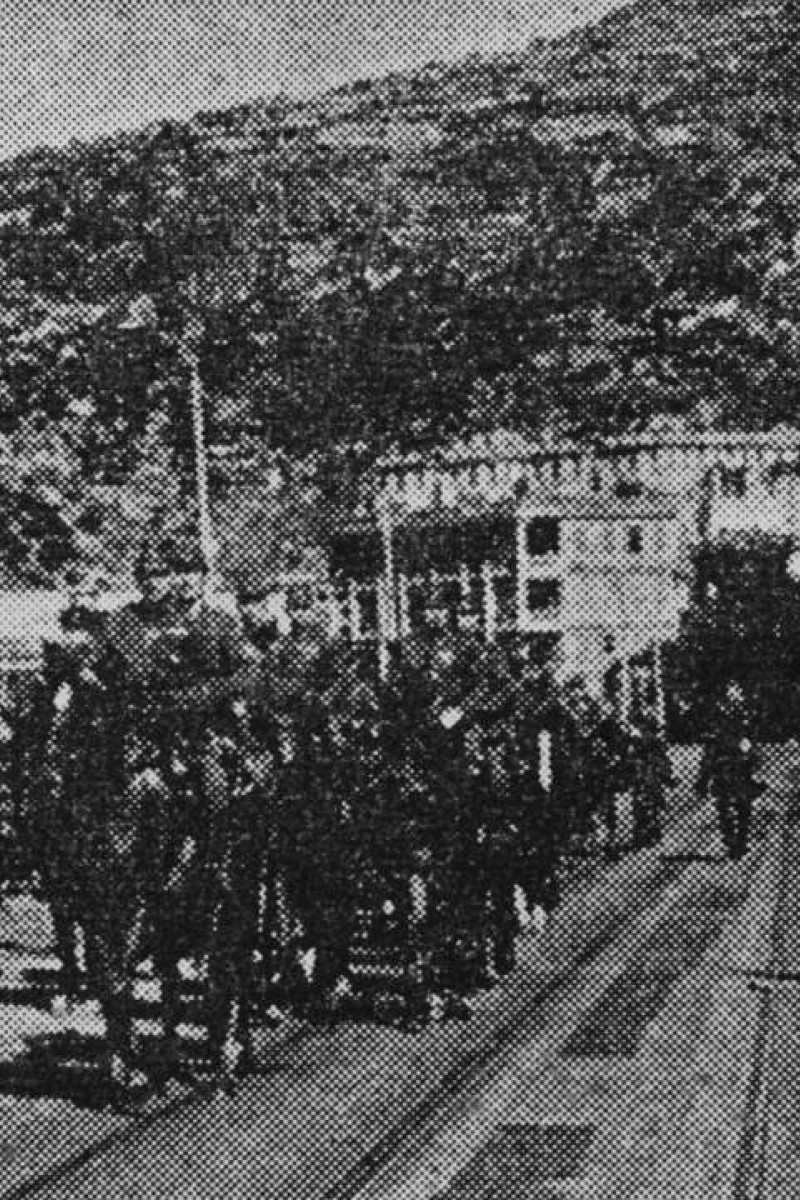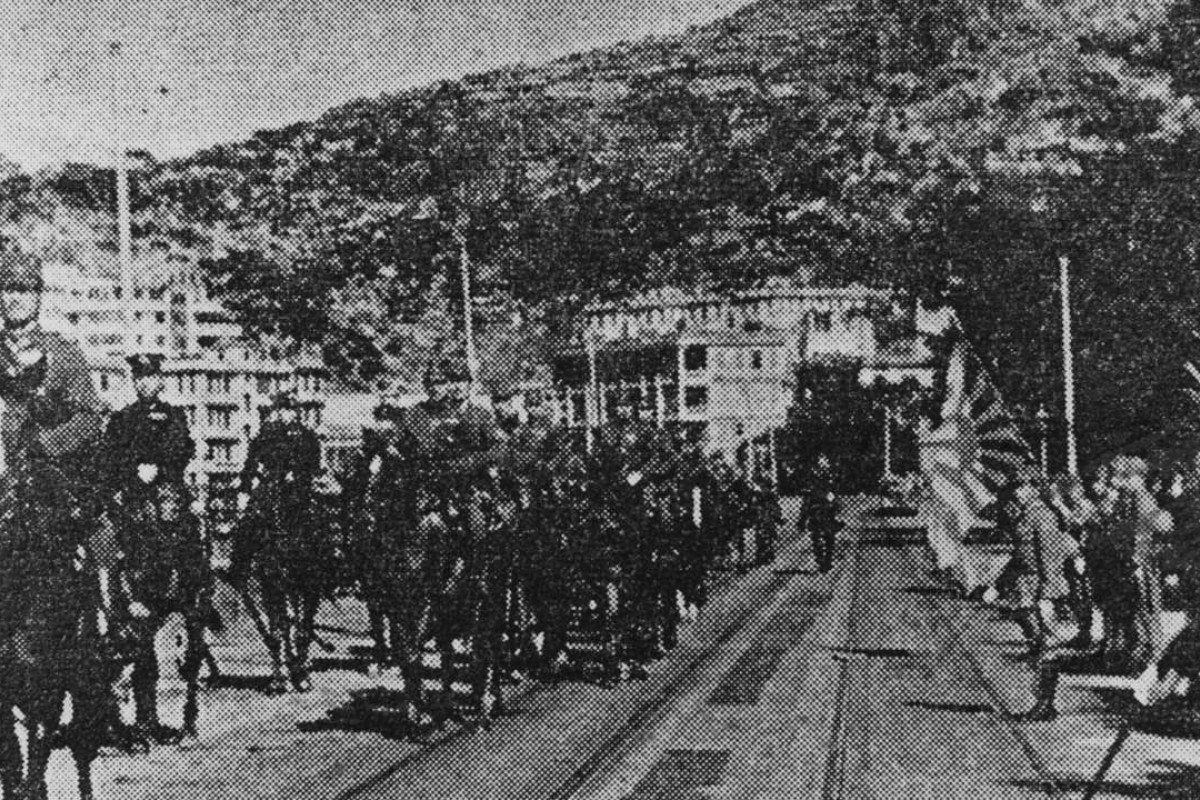
Bizarre and unnecessary: changes to Chinese history curriculum criticised by educators
Educators say the Education Bureau is making the subject chaotic and won’t attract more students to choose it
 Shot of Japanese troops taking part in a ceremonial parade on horseback as part of their occupation ceremony in Hong Kong. Photo: SCMP
Shot of Japanese troops taking part in a ceremonial parade on horseback as part of their occupation ceremony in Hong Kong. Photo: SCMPEducators have criticised the revised junior secondary Chinese history curriculum, saying it makes the subject too chaotic and imbalanced.
The Education Bureau started a one-month long public consultation on Thursday with the aim of “energising” the Chinese history syllabus. The plan hopes to strike a balance between ancient and modern history, and attract more senior students to choose the subject as their HKDSE elective. The elements of Hong Kong history, such as the Japanese occupation and the 1997 handover, will be added to the new version.
Speaking to Young Post yesterday, Elegantia College principal and Education Convergence vice-chairman Ho Hon-kuen said he didn’t think the changes would encourage more students to choose the subject because the revised version placed greater emphasis on modern history - and only the positive events.
“It’s a shame that so many rebellions and the collapse of different eras will be scrapped in the new syllabus, because many junior students are interested in these historical events, including Three Kingdoms (AD220-280), the Lushan Rebellion (AD755-763) and Yue Fei’s stories (AD1103-1142). I don’t think students will be more interested in this subject anymore,” says Ho.
Ho also considered the integration of Hong Kong’s political and cultural history into the revised curriculum bizarre and unnecessary. “What makes the curriculum revision disastrous is the addition of Hong Kong history. The revised version will be too broad. It is very challenging for junior secondary students to digest such a huge amount of content. This will only discourage students from selecting it as a HKDSE elective.”
Ho hoped that the bureau could revise the Chinese history curriculum in a systematic way. “First, the subject should be compulsory throughout all the junior secondary levels – at the moment, some schools only teach it in Form 1 and Form 3, for example. Second, the revision should be coherent and inclusive. Make it a balanced curriculum, consisting of the rise and fall of the eras, instead of being ‘picky’ and selective about some elements,” he insists.
Meanwhile, education lawmaker Ip Kin-yuen also told Young Post that the bureau should have extended the consultation period to three months, to give educators enough time to discuss the details of the revision.
“There are a lot of controversial issues surrounding the revision, and I don’t think the bureau has given us ample time to discuss. First, the bureau’s statement that the revised version will redress the balance between ancient and modern history is inaccurate. It’s obvious that the bureau is focusing more on modern history, especially its relations with the city. I wish the bureau would have some sort of forum for principals, teachers and the curriculum review committee members to discuss the changes,” says Ip.
Lee Wai-hung, chairman of the Association of Chinese History Teachers, said by introducing elements of Hong Kong history to the syllabus – from ancient history to the 1997 handover – students would understand that the city is an indisputable part of China.
The current Chinese history syllabus for junior secondary school levels has been in place for nearly 20 years. The subject is taught in all junior secondary schools in Hong Kong. At senior secondary levels, the subject is an elective.
Figures show the number of students taking Chinese history for their Diploma of Secondary Education fell from 11.1 per cent in 2012 to 8.26 per cent last year.